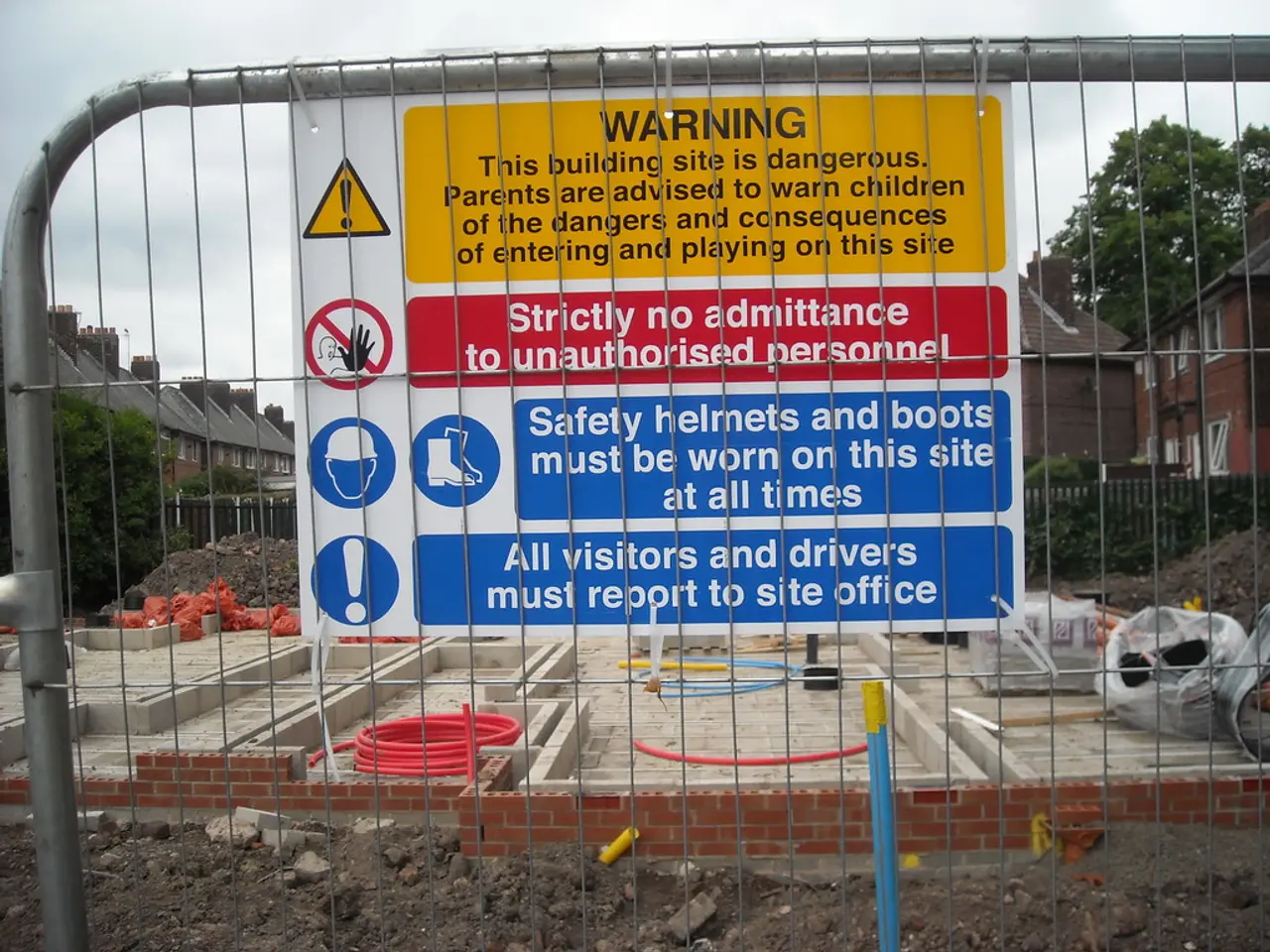Criticism levied against proposed West Bank settlement agreements by the federal administration
The Israeli government's plans to build over 3,400 housing units in the E1 area of the West Bank have sparked widespread international condemnation and raised serious concerns about peace efforts and the territorial integrity of the State of Palestine.
Israeli Finance Minister Bezalel Smotrich announced the construction plans in the E1 area, which lies between East Jerusalem and the settlement of Maale Adumim. The development, if implemented, would separate the West Bank from East Jerusalem and split the territory into northern and southern parts.
The United Nations Secretary-General has condemned the decision, stating that Israeli settlements in the occupied West Bank, including East Jerusalem, violate international law and UN resolutions. This interpretation is supported by the International Court of Justice, which offered an advisory opinion on 19 July 2024 reaffirming that Israeli settlement activity breaches international legal obligations.
The Turkish Foreign Ministry has strongly criticised Israel's approval of the E1 settlement plan, stating that it disregards international law and UN resolutions and undermines the territorial integrity of the State of Palestine. Similarly, the German government has expressed its disapproval of Israel's plans to build thousands of new housing units in the West Bank, citing that settlement construction violates international law and relevant UN Security Council resolutions.
The European Union and Turkey have also joined the chorus of criticism, with EU foreign policy chief Josep Borrell stating that such unilateral decisions exacerbate the already tense situation on the ground and further undermine any possibility of peace. The German government has made it clear that it will only recognise border changes from June 4, 1967 that are agreed upon by the conflicting parties.
Moreover, the construction plan involves displacement of local Palestinian Bedouin communities who have reportedly received demolition orders, raising additional issues related to forced displacement and restrictions on movement. Frequent attacks by radical settlers on Palestinians in the West Bank often occur with perpetrators rarely held accountable.
In a provocative move, Israeli Finance Minister Smotrich threatened to annex the West Bank if a Palestinian state is recognised next month. This annexation plan is rejected by the German government.
As of now, more than 700,000 settlers live among around three million Palestinians in the West Bank and East Jerusalem, areas that Israel occupied during the Six-Day War in 1967. The E1 area is considered one of the most sensitive points in the conflict between Israel and the Palestinians, as its development would effectively divide the West Bank into a northern and southern part.
The international community's unified stance against the E1 settlement plan highlights the profound legal and political implications of Israel's actions. The plan contravenes established international norms regarding occupation, threatens Palestinian territorial viability, and provokes widespread international condemnation. It is hoped that the Israeli government will reconsider its plans in light of these concerns, in the pursuit of lasting peace and a two-state solution.
[1] UN Secretary-General Condemns Israeli Settlement Plans in the West Bank (2024) [2] Turkish Foreign Ministry Condemns Israeli Settlement Plan for E1 Area (2024) [3] International Court of Justice Advisory Opinion on Israeli Settlements (2024)
Read also:
- Weekly happenings in the German Federal Parliament (Bundestag)
- Southwest region's most popular posts, accompanied by an inquiry:
- Discussion between Putin and Trump in Alaska could potentially overshadow Ukraine's concerns
- Massive 8.8 earthquake hits off the coast of Russia's Kamchatka Peninsula, prompting Japan to issue a tsunami alert.








